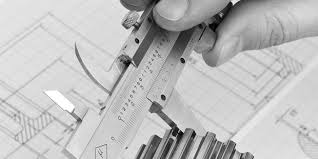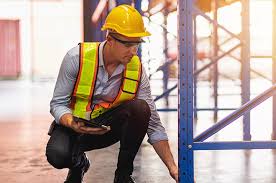Third-party inspection for aerospace is crucial in ensuring the quality and safety of aerospace products. third party quality inspection In...
Third-party inspection for aerospace is crucial in ensuring the quality and safety of aerospace products. third party quality inspection In a highly regulated and technically complex industry like aerospace, third-party inspection plays a vital role in providing an unbiased evaluation of products and processes. This article will explore the importance of third-party inspection in the aerospace industry and its role in ensuring the highest quality standards are met.
Ensuring quality through third-party inspection is crucial for the aerospace industry due to the strict regulations and safety standards that must be upheld. Third-party inspectors provide an objective and impartial assessment of the manufacturing and assembly processes, helping to identify potential issues or non-conformities before they become major problems. This type of inspection also helps to build confidence in the quality and third party inspection companies in egypt reliability of aerospace components and equipment, ultimately contributing to the safety and success of the industry as a whole. Third-party inspection can also help aerospace companies demonstrate compliance with industry standards and regulations, as well as customer requirements, making it an essential part of the quality assurance process.
Ensuring quality through third-party third party inspection company in egypt inspection is crucial for the aerospace industry due to the strict regulations and safety standards that must be upheld. Third-party inspectors provide an objective and impartial assessment of the manufacturing and assembly processes, helping to identify potential issues or non-conformities before they become major problems. This type of inspection also helps to build confidence in the quality and reliability of aerospace components and equipment, ultimately contributing to the safety and success of the industry as a whole. Third-party inspection can also help aerospace companies demonstrate compliance with industry standards and regulations, as well as customer requirements, making it an essential part of the quality assurance process.
Why Third-Party Inspection is Crucial for Aerospace Industry

Third-party inspection for aerospace plays a critical role in ensuring the safety, quality, and compliance of aerospace products and components. With the stringent regulations and high stakes involved in the aerospace industry, third-party inspections provide an independent and unbiased assessment of manufacturing processes, materials, and products. By implementing third-party inspection, aerospace companies can mitigate risk, improve quality control, and enhance their overall operational efficiency.
The aerospace industry is highly complex and safety critical, meaning that any small defects or errors in production can have catastrophic consequences. Third-party inspection is crucial in the aerospace industry to ensure that all components and systems are manufactured to the highest standards and comply with strict regulations. These inspections provide an unbiased and independent evaluation of the quality and safety of aerospace products, helping to mitigate risks and ensure compliance with industry standards. Third-party inspections also help to build trust and confidence among manufacturers, suppliers, and customers, as they provide an extra layer of verification and accountability in the production process. Overall, third-party inspection plays a vital role in maintaining the safety and reliability of aerospace products, which is crucial for the industry's success.
Benefits of Implementing Third-Party Inspection in Aerospace Manufacturing

Third-party inspection in aerospace manufacturing provides a number of benefits. It helps to ensure that all products and systems meet the required quality and safety standards, as well as compliance with industry regulations. By having an independent third party inspect the manufacturing processes, aerospace companies can demonstrate their commitment to producing high-quality and safe products. Third-party inspection also helps to identify and address any issues that may arise during the manufacturing process, ultimately leading to improved quality and reduced risk of defects or failures. Additionally, it can provide valuable feedback to help improve processes and procedures, leading to greater efficiency and cost savings. Overall, third-party inspection is essential for maintaining the integrity and reliability of products in the aerospace industry.
The Role of Third-Party Inspectors in the Aerospace Sector

Third-party inspectors play a crucial role in the aerospace sector by providing independent oversight and verification of manufacturers' products and processes. They help ensure that aerospace components and systems meet strict quality and safety standards set by regulatory agencies and industry organizations. Third-party inspectors conduct thorough inspections, audits, and tests to validate compliance and identify any non-conformities. Their involvement helps to improve overall product quality, reduce risk, and build trust among customers and stakeholders within the aerospace industry.
Ensuring Quality and Safety: Third-Party Inspection in Aerospace

Ensuring Quality and Safety: Third-Party Inspection in Aerospace is crucial for maintaining high standards in the manufacturing and maintenance processes of aircraft and related components. Third-party inspection involves the use of independent inspection agencies or individuals who are not directly involved in the production or maintenance of aerospace products. These third-party inspectors provide unbiased evaluations of the quality and safety of aerospace products, ensuring that they conform to regulatory standards and industry best practices. The use of third-party inspection in the aerospace industry helps to mitigate the risk of potential conflicts of interest and ensures that the highest standards of quality and safety are being upheld. Third-party inspectors are trained and certified professionals with a deep understanding of aerospace regulations and requirements. They conduct thorough assessments of manufacturing processes, materials, and finished products to identify any discrepancies or non-conformities. By leveraging the expertise of third-party inspection professionals, aerospace companies can gain confidence in the reliability and safety of their products, ultimately enhancing their reputation and customer satisfaction. Additionally, third-party inspection can also help aerospace companies to identify and address any potential issues before they escalate into more significant problems, ultimately saving time and costs in the long run. Overall, third-party inspection plays a vital role in ensuring that the aerospace industry maintains the highest standards of quality and safety, ultimately contributing to the overall safety and reliability of aerospace products and services.
Key Considerations for Choosing Third-Party Inspectors in Aerospace
When choosing third-party inspectors in the aerospace industry, it is essential to consider their qualifications and credentials. This includes ensuring that they are accredited by relevant industry organizations and regulatory bodies. Experience and expertise in aerospace manufacturing and inspection processes are also crucial factors to consider. Additionally, it is important to evaluate the inspection techniques and methodologies utilized by third-party inspectors. The use of advanced technology and adherence to industry best practices can greatly impact the accuracy and reliability of inspections. Communication and reporting capabilities are also key considerations. Third-party inspectors should be able to effectively communicate findings and provide comprehensive, detailed reports in a timely manner. Furthermore, it is important to consider the reputation and track record of third-party inspectors. Seeking references and conducting thorough background checks can help ensure that the chosen inspectors have a history of delivering high-quality and reliable inspection services. Finally, it is important to consider the cost and logistical aspects of working with third-party inspectors. Evaluating pricing structures, availability, and the ability to meet specific project requirements are essential in making an informed decision.
Improving Compliance and Quality Control with Third-Party Inspections
third party quality inspection
Improving compliance and quality control with third-party inspections involves outsourcing inspections to independent, accredited organizations to ensure that products and processes meet regulatory and industry standards. By utilizing third-party inspections, companies can gain impartial assessments of their operations and products, identify areas for improvement, and demonstrate transparency and due diligence to regulatory bodies and consumers. This can ultimately lead to improved overall quality and compliance, as well as enhance the reputation of the company in the marketplace.
The Impact of Third-Party Inspections on Aerospace Supply Chains
Third-party inspections play a crucial role in aerospace supply chains by ensuring that suppliers and manufacturers comply with industry standards and regulations. These inspections help verify the quality and safety of components and materials used in aerospace manufacturing, ultimately contributing to the reliability and performance of aerospace systems. By providing independent oversight and verification, third-party inspections help mitigate the risk of non-compliance and potential failures in highly safety-critical aerospace applications. Additionally, they can also help enhance transparency and trust within the supply chain, potentially leading to more efficient and productive partnerships between suppliers and manufacturers. Overall, the impact of third-party inspections on aerospace supply chains is significant in maintaining high standards of quality, reliability, and safety throughout the industry.
Best Practices for Conducting Third-Party Inspections in Aerospace
- Third-party inspections in the aerospace industry should be conducted by qualified and experienced inspectors who are familiar with aerospace regulations and standards. - Inspectors should thoroughly review all relevant documentation, including specifications, drawings, and previous inspection reports, to ensure compliance with industry standards and customer requirements. - Inspections should be carried out using calibrated and well-maintained equipment to guarantee accurate and reliable results. - Inspectors should communicate effectively with all stakeholders during the inspection process, providing clear and concise feedback on the findings and any deviations from the required standards. - It is essential to maintain impartiality and integrity throughout the inspection process, ensuring that all findings and recommendations are based solely on the evidence and not influenced by external factors. - After completing the inspection, inspectors should prepare comprehensive and detailed reports outlining their findings, including any non-conformities and recommendations for corrective actions. - Inspectors should also follow up on any corrective actions to verify their effectiveness and ensure that the necessary improvements have been made to maintain compliance with aerospace standards.

